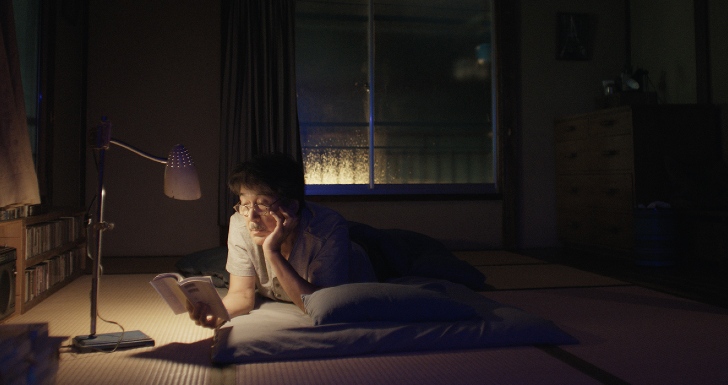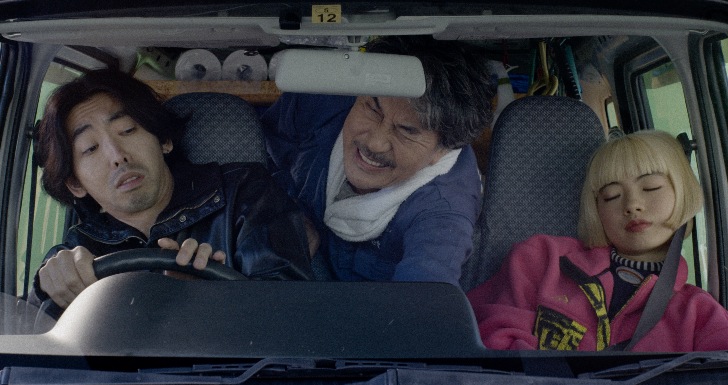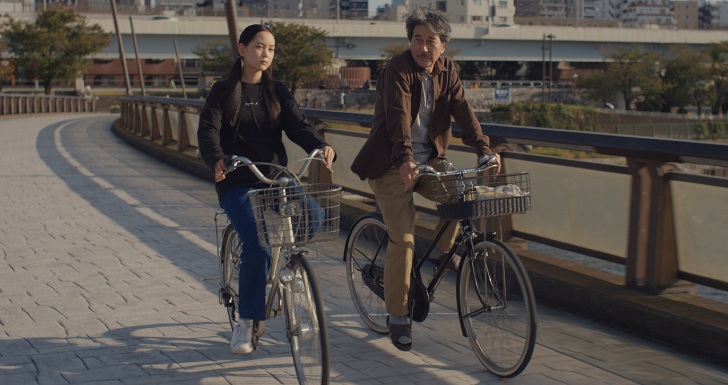Users: 188
“Perfect Days” is the award-winning new work by filmmaker Wim Wenders, starring the talented Kôji Yakusho!
I propose to you for a very brief moment that you forget what science and astrophysics have revealed in recent decades, such as Big Bang Theory, and that instead we remember ancient narratives about the origin of the universe. Well, if in the genesis of the cosmos God, and most likely the Devil, left aside their differences and did not kick and slap each other, it could be that the world in which we live, perhaps the expanding universe itself, that we belong, like a tiny particle lost in space, would be a much more interesting place. Naturally, for things to work, existential concepts could and should be different. I give you some examples: There would be no peace, quite simply because war would be something unimaginable. There would be no diseases or pandemics that would disrupt our agendas and limit our individual or collective freedom. Would there be death? No, unless requested and for very personal or philosophical reasons.
A SPIRITUAL MAN IN AN INCREASINGLY MATERIAL CITY
There would be no hunger, because it would not be necessary to consume food or fight for a simple crumb of bread as many do today and, continuously, there would be no need to satisfy our basic needs in a hygienic routine that results from our equally basic and routine biological functions. In this, let’s say, almost perfect world, a hedonistic world in which citizens could dedicate themselves to a full contemplation of life that would involve the appreciation of arts and letters and the most acute and profound humanist thought, the protagonist of “Perfect Days” (“Perfect Days”), 2023, directed by Wim Wenders, you could easily find your sanctuary, your paradise just around the corner. But, as there is no beauty without anything else, he would be forced to look for a job other than that of an employee who, with patient and painstaking diligence, dedicated himself to cleaning public bathrooms in the city of Tokyo. In short, there are no perfect worlds. It remains to be seen if there are “Perfect Days”.

“Perfect Days”, the film project, was born from an invitation made to Wim Wenders by businessman Koji Yanai so that the German director could imagine a set of short films about public bathrooms restored and intervened with architectural innovations and a touch of avant-garde art, seventeen installations integrated into the so-called Tokyo Toilet Project. Some will say with friendly bonhomie that only in Japan they would remember something bizarre like that. But, all things considered, why not? But Wim Wenders and his co-screenwriter, Takuma Takasakiinstead of one or more short films, they decided to create a 123-minute feature film in which a lonely man, Hirayama (Koji Yakusho), was faced not only with his immaculate zeal for work but, above all, with the safeguarding of his own identity, his tastes and his routines. Everything punctuated by the comings and goings of the paths taken day after day in the area surrounding his modest house, the walks along the river Sumidawhere the imposing silhouette of the famous Tokyo Skytreeand also due to the places where the aforementioned bathrooms are concentrated, the neighborhood of Shibuya.
From the routines of our cleaning hero, Wim Wenders will give us cloth for sleeves, and there is still something left for a patchwork blanket, an intriguing quilt Japanese. In the morning, Hirayama wakes up to the sound of a lady outside sweeping the fallen leaves on the ground. Meanwhile, the protagonist fixes the mattress and bed clothes, goes downstairs and trims his mustache, trims his beard with a machine, sprays the plants growing in pots in a kind of indoor greenhouse bathed in violet light, puts on the overalls of the service, collects the keys, some coins, a camera (the kind that still uses a negative), and finally when leaving the house he invariably looks at the sky. Later we will see him looking at the tops of the treetops that he photographs in black and white, in the same changing blacks and grays of dreams conceived as animated pictures of what each night we perceive to be the abstraction of his daily experiences.

Back to palpable reality, before getting into the van where he keeps his work utensils, he goes to one of those drinks and food vending machines that exist in the four corners of Japanese cities, and beyond, and takes out a can of coffee. Then, already in the car and proving his good musical taste and obsession with analogue sound, he listens to music from old audio cassettes featuring the biggest names in Western rock, pop and soul such as Lou Reed (not by chance, performer of the song that gives the film its name, “Perfect Days”), patti smith, Janis Joplin, Otis Redding, van morrison or Nina Simone. At night, before falling asleep, he adds literary taste to his good musical taste and his readings are in the realm of a William Faulkner and of a Patricia Highsmith.
Having said that, the number one question that is asked at a certain point to the spectator watching the film, you already understand what it will be: why on earth is this man cleaning toilets, chic and high quality? design but nevertheless, toilets? Namely, why does he share his job with a somewhat crazy and hallucinated colleague, who he wants to send to one of those places he wouldn’t willingly go to? Anyway, why the hell does he accept the presence of the man’s girlfriend who seems even more out of her mind, dressed like a proto-erotic Lolita? mango? Why is it that any somewhat eccentric or amazed citizen (like the woman who has lunch with him on a garden bench close to his, always looking into infinity), attracts him more than the common inhabitants of a city where, in truth, , most of them live in a stress more or less controlled? Does Hirayama seek in the midst of this material world of contrasts to preserve his routines, which thus appear as a safe haven, the certainty of not being bothered or surprised by any imponderables that destroy his spiritual concerns, his inner universe?
In its detailed and long minutes, “Dias Perfeitos” will seek to answer these and other questions, and it does so by generating here and there small dramatic conflicts embodied in real-life incidents that can and, sometimes, end up interrupting routines for he assumed. Thus, one fine day the young and simple niece, Niko (Arisa Nakano), will appear by surprise to actually invade the space of the house and occupy Hirayama’s room. Nothing that bothers him, at least in appearance, except when his sister, Keiko (Yumi Asô), Niko’s mother, picks up her daughter in a luxury car with a driver, something that makes us think that after all Hirayama has a past that we suspected existed in opposition to the constraints of the present, perhaps an imperfect past tense that we will never actually know for sure whether or not it was the reason that led him to choose that life of an urban ascetic. More significant will be, on a more casual relationship level, the relationship with the owner of a bar, Mama (Sayuri Ishikawa), a mature woman who clearly has a special affection for him.

In the end, it will be because of her that you will find yourself confronted with a suspicion of your ex-husband that, for all intents and purposes, has little or no basis at all. But that doesn’t stop him from turning things around and ending up facing the situation with youthful enthusiasm, almost as if it were a fun accident on the road. Against the best expectations, Hirayama not only lives as a free and independent man but also wishes to continue being one, which in his way of facing human relationships with others involves saying very little, only the essentials, always at the limit of necessary and only when questioned more incisively. However, thanks to the actor’s acting skills Koji Yakusho, the communication you establish goes through a constant, sincere and effective metamorphosis of your face. Using a look, a smile, Hirayama seeks to share with himself the future he has chosen, one day, two days, several perfect days.
Perfect Days, the Review

Movie title: Perfect Days
Director(s): Wim Wenders
Actor(s): Kôji Yakusho, Min Tanaka, Tokio Emoto, Arisa Nakano, Aoi Yamada, Yumi Asô, Tomokazu Miura
Genre: Drama, 2023, 119min
Conclusion:
PROS: Nothing beats the performance of Kôji Yakusho, who deservedly received Cannes Festival 2023 Best Actor Award.
In the same edition of the Festival, “Dias Perfeitos” also received the Ecumenical Jury Prize.
CON: Nothing special…!





















